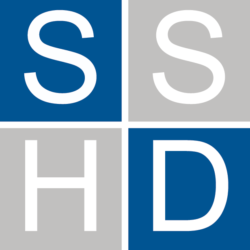Ask a Professor: Dr. Susan Clayton
This blog is designed to enhance the work done by the Society for the Study of Human Development (SSHD) to support students and junior scholars through connections with established researchers.
 This month we feature Dr. Susan Clayton, a professor of psychology and chair of the program in environmental studies at the College of Wooster. Dr. Clayton is also past president of the Society for the Psychological Study of Social Issues (SPSSI). In this interview, Dr. Clayton provides insight into strategies to use psychology to help save the world.
This month we feature Dr. Susan Clayton, a professor of psychology and chair of the program in environmental studies at the College of Wooster. Dr. Clayton is also past president of the Society for the Psychological Study of Social Issues (SPSSI). In this interview, Dr. Clayton provides insight into strategies to use psychology to help save the world.
What is the main focus of your work?
My research focuses on the ways in which people construct a relationship with the natural world, within a social context. In other words, what kinds of social interactions affect people’s attention to, interpretation of, and concern about environmental issues? My hope is that this research can help to guide practices, such as educational or conservation programs, that both promote opportunities for people to enjoy nature and also encourage environmental concern.
How did you get started doing translational or applied research?
As a graduate student in social psychology, I began to be interested in the ability of psychological research to inform important social issues, such as gender discrimination. Early involvement with SPSSI provided me with help and moral support: evidence that other researchers were making the same connection, and a journal that highlighted this research. I gradually realized that environmental issues could also be illuminated through psychological research. After I started doing research in this area, I recognized the need but also the opportunity to speak to non-psychologists, especially policymakers and conservation scientists. Over time, people began to contact me about opportunities to apply my research.
How do you bring your findings to the attention of policy makers?
Communicating with policymakers is a real challenge. SPSSI now has a policy director who helps to identify opportunities and to disseminate information about relevant psychological research. Mostly through this channel, I have spoken at a side event at the United Nations and have visited the Hill to speak with congressional staffers. I have also worked with a nonprofit agency whose goal is to promote attention to climate change among diverse audiences, including business and religious leaders as well as policymakers. The key is to utilize organizational networks.
What barriers have you faced in doing applied or translational research, and how did you overcome them?
I have found the biggest barriers to be a lack of common language and of a common location for sharing information. In other words, we’re not all attending the same conferences and reading the same journals. Things have become easier with the increase in interdisciplinary journals. But I have to actively try to become broadly informed rather than restricting myself to my own professional specialty.
In your experience, how does doing applied or translational research fit into an academic career?
The experience of fitting translational research into an academic career can vary widely depending on the institutional context. In many ways, translational research is increasingly valued and there are more academic centers, and funding opportunities, that emphasize interdisciplinary collaborations to address applied problems. However, top universities often still want their faculty to publish in the main disciplinary journals, which emphasize experimental rigor and not applications. I think it has helped me to be at a small institution where I have many opportunities to have cross-disciplinary conversations, and flexibility is probably more highly valued than specialization.
What advice do you have for colleagues doing this type of work?
First, focus on reaching a wide audience. Although not every communication has an impact, broader dissemination increases the likelihood that the message will reach someone who can use the information. Second, be prepared to communicate to these diverse groups. Find ways to describe the research results using language that makes the significance clear to non-specialists. Finally, look for opportunities to get involved. The points of potential impact will not necessarily present themselves in an obvious way.
I would advise junior scholars to be motivated by the great potential of translational research. I went into psychology not only because it was fascinating but because I wanted to do something useful. When psychologists speak only to other psychologists, they are missing the opportunity to take the knowledge they have gained and share it with those who can utilize it to the benefit of society.
If you are a researcher doing applied or translational work, we want to hear from you! Contact the series editor, Dr. Jennifer Agans, at jpa75@cornell.edu to be featured in this blog. Junior scholars are also welcome to submit questions you would like to see answered in future editions of the blog.





